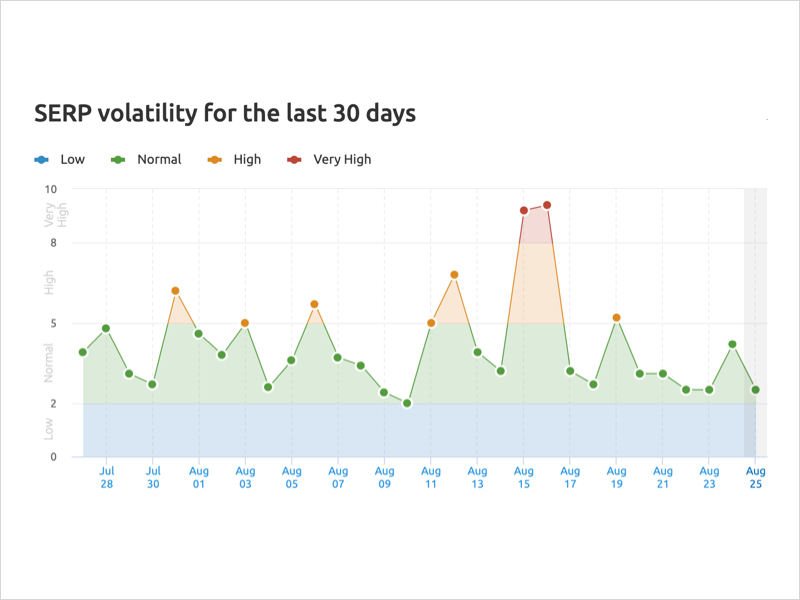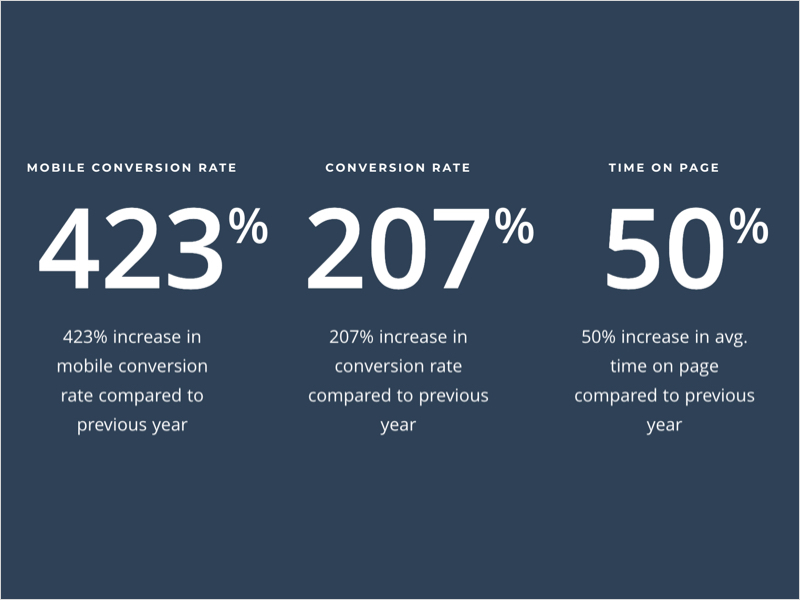
5 Reasons SEO Isn't An Option - It's A Necessity
10
minute read time
A website with a user-friendly interface and cutting-edge design can provide a potential user with the perfect experience. But it won’t matter if visitors can’t find you.
Quality search engine optimization (SEO) is looking at a website, both internally and externally, to make sure you have the SEO 101 fundamentals in place, including:
-
Relevant keywords, inserted in header tags and naturally present in copy
-
Internal and external links
-
Continually updating content with relevant messaging
Ensuring these fundamentals are in place before embarking on ongoing optimization efforts will significantly increase the quality of incoming traffic to your site and your overall online presence. These practices also ensure that all subsequent SEO initiatives performed off-site will garner the greatest results.
Google Market Share
Before diving in, we wanted to talk about Google. Oftentimes you’ll hear digital marketers refer singularly to Google when talking about search engine optimization - sometimes even talking as if Google was a person. While there are many other search engines on the web, Google has consistently dominated the market share.
“By the end of the second quarter of 2020, Google accounted for 91.75% of searches online, followed by Bing at 2.75% and Yahoo with 1.70%.”
StatCounter
While we want to make sure we’re optimizing for all organic search engines, we understand that we have to focus on where the audience is. It doesn’t seem like this is going to change anytime soon either, as Google’s share has dropped only by 0.9% from the year prior.

1. Google Algorithm Changes
SEO is not a one-and-done effort. The digital environment is constantly changing and requires ongoing optimizations. Part of search engine optimization is being knowledgeable about the algorithm updates. Google’s algorithm changes twice each day on average, with larger scale algorithm updates at least once per quarter.
With the search engine ranking factors changing so often, crafting an ongoing SEO strategy is crucial to remaining competitive and relevant.
Image: SEMRush
2. Increase in Traffic and Brand Awareness
You may have some great out-of-the-box ways to promote your service or products, but if you’re looking to increase traffic, look no further than SEO.
Did you know there are over 3.5 billion organic searches on Google everyday? No matter the industry, the majority of product searches begin on Google. Even with the growing number of ads being shown on search engines, research shows that 94% of users click on an organic link instead of an ad. Investing in an SEO strategy allows your brand to tap into these billions of searches, giving yourself the opportunity to improve brand awareness and increase potential sales and overall online traffic.
3. Quality of Traffic
Organic traffic is not only among the highest contributors for a website’s incoming traffic, but it also tends to show some of the highest “click to conversion” ratios. This makes complete sense. Why? Because users trust Google. If your site is ranking well for specific keywords and phrases related to your industry or service offerings, it tells users that you are what they are searching for.
Fresh and relevant content is one of the main ranking factors in Google’s search engine algorithm. This allows your brand to only be shown for searches applicable to what you have to offer. You could create highly targeted ads to increase your website traffic quickly, but it’s never guaranteed that these paid users will be as engaged as organic users.
Over time, with the right strategy, search engine optimization helps build both trust and credibility around your brand. SEO lays a strong foundation that you can continue to build on unlike other digital marketing strategies.
Because Googling is such a normal practice to users now, it is pertinent that businesses practice proper search engine optimization efforts as well so that users can find you when they are specifically searching for what your brand has to offer.
SEO is no longer an option, but a necessity. It is a marketing discipline that evolves into a continued business investment to grow brand awareness, thought leadership, and revenue.

4. Return on Investment
For some reason, SEO has gotten a reputation of having a low or incalculable return on investment. However, digital marketers have proven this wrong and become even better at tying together analytic platforms and website strategies to show ROI. As mentioned above, organic traffic coming to your site tends to have one of the highest conversion rates - and we have seen this firsthand. A full website redesign from our design and development team partnered with our SEO strategy led to an increase of 207% in the online conversion rate for one of our clients.
All of this boils down to the quality of traffic SEO brings to the website on a consistent basis. Online conversions have become such a large part of the income for so many different industries. By decreasing the overall cost per conversion, you can show the ROI of any SEO strategy.
5. Overall Online Presence
This consistency is also shown through growing your overall online presence. Google rankings have become a universal indicator for brand credibility and trustworthiness. Websites that are reliable and show off their expertise in their industry usually hold a higher page authority. The higher the page authority, the more likely the page will rank. By continuing to optimize for organic search results and providing relevant content for your users, you can expand your online presence as well as increase the overall trust and credibility of your brand.




